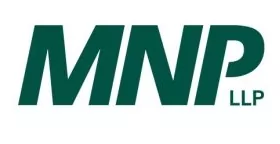While family trusts are great tools for flexibility in income splitting and succession planning, a day will come where the trustees must make the decisions about what to do with the trust property.
From an income tax point of view, a trust is deemed to dispose of trust property at the 21st anniversary of settlement of the trust, and every 21 years thereafter. This policy is meant to force a distribution of trust property to the beneficiaries or have taxes triggered.
Below are some key planning considerations when approaching the 21st anniversary of a family trust.
Keeping Property in the Trust: As the trust reaches its 21st anniversary, under the 'do nothing' approach, the trust will retain the property but will be deemed to dispose of it at fair market value (FMV) and reacquire it at that same FMV, essentially triggering the taxes and having a new cost on the property. The trustees should determine the consequences of triggering the gain on the 21st anniversary. Depending on the cost base of the assets and the FMV, the capital gain may not result in a significant tax and there will be another 21 years to make a decision about the ultimate distribution of trust property.
Sell Property: If the trust is going to trigger capital gains on the trust property, the trustees may decide to sell the property and distribute the net assets to the beneficiaries.
Watch Timing of Acquisitions / Dispositions: Consideration may be placed on what properties the trust should own. It may make sense to delay purchasing an asset until after the 21st anniversary or alternatively, sell certain assets in advance of the date. If a property is to be sold shortly after the deemed disposition at the 21st anniversary, the deemed disposition may not have a significant cost as the new adjusted cost base will be equal to the FMV at the 21st anniversary.
Rollout of Trust Property: Generally, a trust can transfer the trust property to the capital beneficiaries on a rollout basis, which means the trust disposes of the assets at its adjusted cost base (ACB) while the beneficiaries receive the assets at that same amount. The properties with latent gains will be held by the beneficiaries directly. Often the trustees will want to transfer properties to the beneficiaries directly, effectively winding up the trust. This rollout can be denied if the trust is considered a reversionary trust.
Reorganization Planning: There are times the trustees may wish to implement a reorganization. The trustees may allocate certain properties with accrued gains to the beneficiaries so they are not disposed at FMV, but retain other assets that do not have accrued gains and trigger the capital gains on these at the 21st anniversary. If you are using a family trust, it is critical to consider the various options and scenarios to ensure the trust continues to meet the family's goals as it approaches the 21st anniversary.
The content of this article is intended to provide a general guide to the subject matter. Specialist advice should be sought about your specific circumstances.

